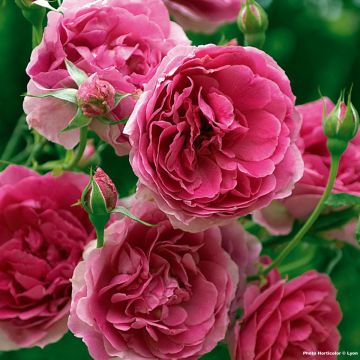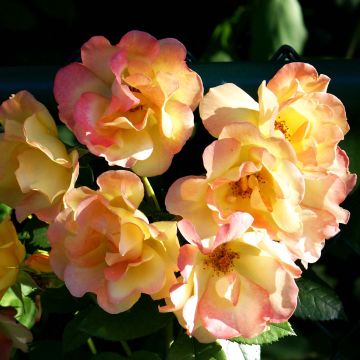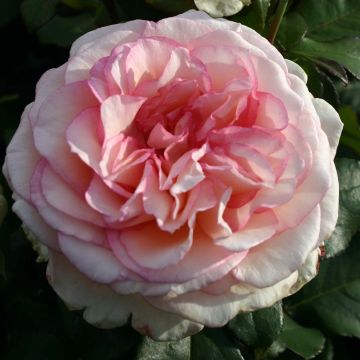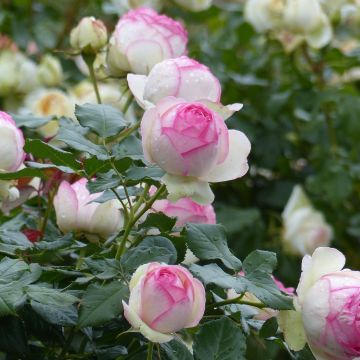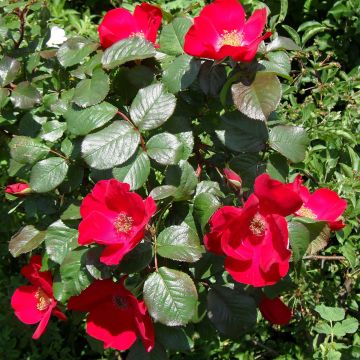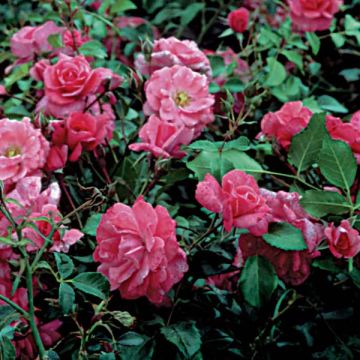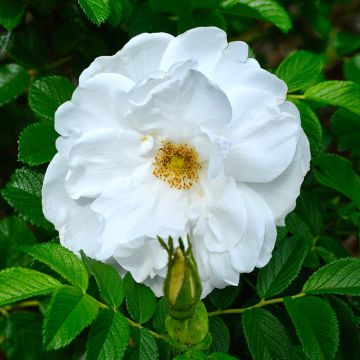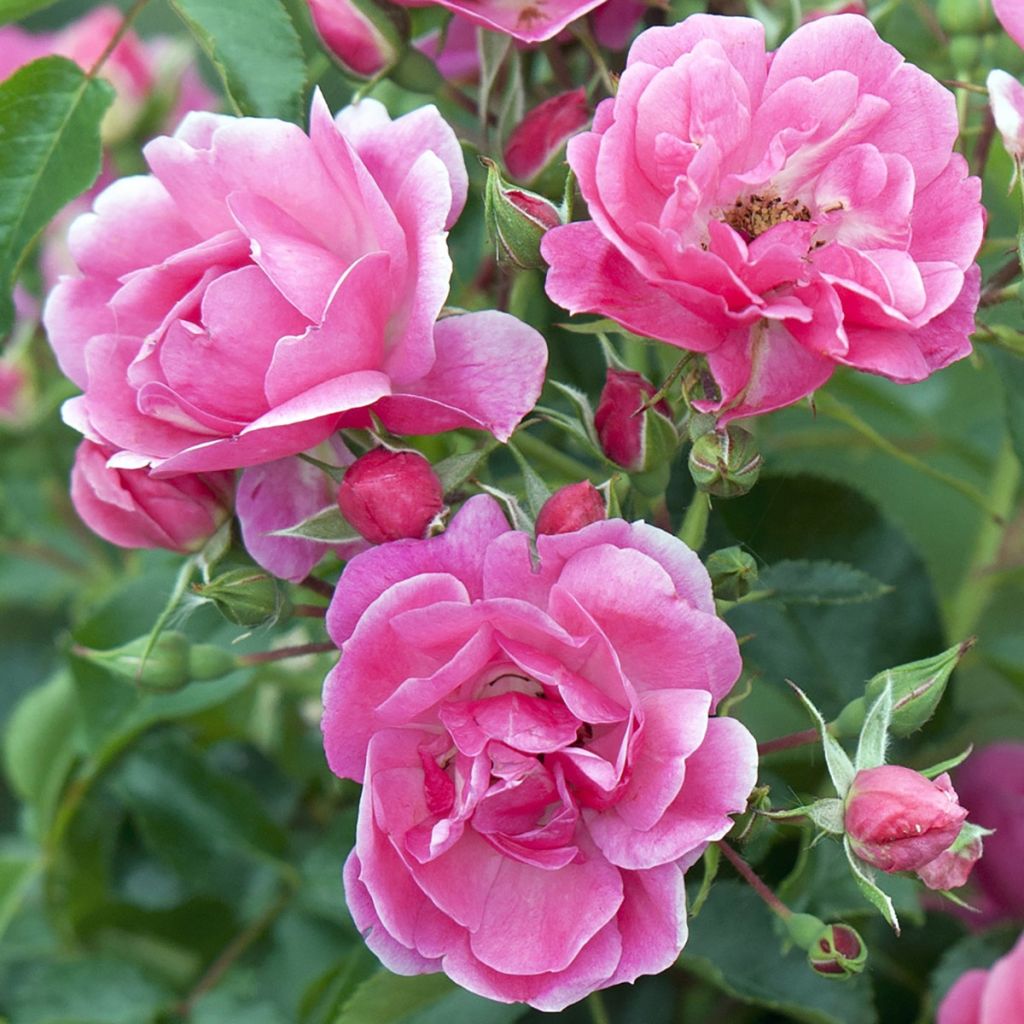

Rosier tige Decorosier® Emera®
Rosa Decorosier Emera Noatraum - Standard Rose
Rosa Decorosier® Emera® 'Noatraum'
Beautiful rose bush in size and flowers.
DOMINIQUE, 02/02/2022
Special offer!
Receive a €20 voucher for any order over €90 (excluding delivery costs, credit notes, and plastic-free options)!
1- Add your favorite plants to your cart.
2- Once you have reached €90, confirm your order (you can even choose the delivery date!).
3- As soon as your order is shipped, you will receive an email containing your voucher code, valid for 3 months (90 days).
Your voucher is unique and can only be used once, for any order with a minimum value of €20, excluding delivery costs.
Can be combined with other current offers, non-divisible and non-refundable.
Home or relay delivery (depending on size and destination)
Schedule delivery date,
and select date in basket
This plant carries a 6 months recovery warranty
More information
We guarantee the quality of our plants for a full growing cycle, and will replace at our expense any plant that fails to recover under normal climatic and planting conditions.


Description
The Decorosier Standard Rose Emera noatraum is an easy and generous variety that produces clusters of small semi-double flowers in a beautiful fuchsia pink shade, from late spring to the first frost. This variety has foliage that always remains impeccable and requires very little maintenance. It has been awarded the highly demanding German ADR label for its exceptional disease resistance. Give it a prominent place in the garden or even in a large pot on the patio, it will provide exceptional decoration for many years.
Standard roses are obtained by grafting a variety (in this case the Decorosier Emera rose) onto a single and upright stem belonging to a different rose (Rosa canina, R. laxa or R. multiflora), with the graft being performed at the top. In very cold regions, it may be useful to protect the rootstock in winter.
The Decorosier Standard Rose Emera belongs to the family of polyantha roses, which produce flowers in clusters. Grafted onto a stem, it shows a characteristic habit, with a slender and upright 'trunk' carrying a globular crown. Its thorny stems bear glossy foliage, divided into small, tough and toothed leaflets of a dark green colour. Its flowering is abundant and regular from May to October-November if it is regularly pruned and provided with enough water. The semi-double flowers are gathered in clusters of about ten, and are 4 to 5 cm (2in) wide. The tightly closed buds bloom into open cups, revealing a small yellow stamen centre. The rose has no fragrance. The plant will more or less retain its leaves in winter if the weather is not too severe.
Decorosier roses are bushy roses with a spreading habit. They can be used in many ways: as lawn borders, in flower beds, on slopes or in planters. They can be planted in any type of soil, in sunny or semi-shady positions. They offer long and exceptional flowering periods on healthy, shiny, semi-evergreen foliage. Naturally resistant to diseases, they do not require any treatment.
The ADR is the label of the German Federation of Rose Breeders. The ADR designation is only granted to varieties that have passed the strictest controls in the world. The plants are tested simultaneously at 10 different locations, in various soil and climatic conditions for several years. The tests focus on hardiness, perennial character and flowering, without using any pesticides.
The Decorosier Emera Standard Rose is a magnificent specimen, to be placed in the centre of a bed of delicate perennials, along a pathway, near the patio, in isolation in a well-kept small garden or in a large pot on the balcony. Its fuchsia colour pairs well with pink, white, mauve or blue flowers. For example, it can be planted in the centre of a bed of groundcover roses, alongside catmints, chamomiles, perennial salvias, foxgloves, penstemons, nigellas or tall gypsophilas. A groundcover composed of silver baskets, stachys or aubrietas will showcase it perfectly.
Report an error about the product description
Rosa Decorosier Emera Noatraum - Standard Rose in pictures
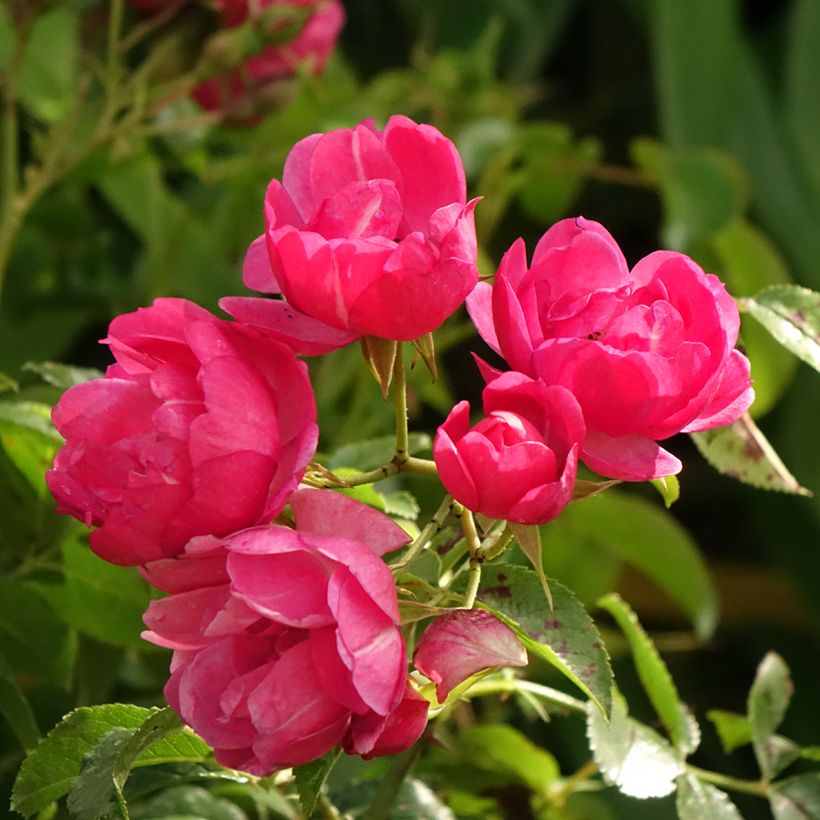

Plant habit
Flowering
Foliage
Botanical data
Rosa
Decorosier® Emera® 'Noatraum'
Rosaceae
Cultivar or hybrid
Planting and care
Plant the Decorosier Emera rose from November to March in ordinary, well-prepared, and well-drained soil. Roses prefer clay soils rather than light ones. In soil that is too sandy, compact, or dry in summer, it is preferable to add compost or decomposed manure to the bottom of the planting hole. However, this rose dislikes waterlogged soils in winter. Place it in a sunny location, preferably in partial shade. Roses are nutrient-demanding plants, so a specific fertiliser application will be beneficial at the start of growth and regularly throughout flowering. To encourage reblooming, regularly remove faded flowers. Floribunda and polyantha rose varieties are more vigorous and floriferous than large-flowered rose varieties. Therefore, stems should be pruned by about one quarter of their length (from 4 to 6 buds from the base of the stem) in late winter. Always prune above an outward-facing bud so that the bush grows bushier and the branches do not become tangled in the centre of the branches.
In regions with very cold winters, it is advisable to protect the grafting stock of stem roses (the 'trunk') by wrapping it in a thick winter protection veil.
Planting period
Intended location
Care
-
, onOrder confirmed
Reply from on Promesse de fleurs
Similar products
Haven't found what you were looking for?
Hardiness is the lowest winter temperature a plant can endure without suffering serious damage or even dying. However, hardiness is affected by location (a sheltered area, such as a patio), protection (winter cover) and soil type (hardiness is improved by well-drained soil).

Photo Sharing Terms & Conditions
In order to encourage gardeners to interact and share their experiences, Promesse de fleurs offers various media enabling content to be uploaded onto its Site - in particular via the ‘Photo sharing’ module.
The User agrees to refrain from:
- Posting any content that is illegal, prejudicial, insulting, racist, inciteful to hatred, revisionist, contrary to public decency, that infringes on privacy or on the privacy rights of third parties, in particular the publicity rights of persons and goods, intellectual property rights, or the right to privacy.
- Submitting content on behalf of a third party;
- Impersonate the identity of a third party and/or publish any personal information about a third party;
In general, the User undertakes to refrain from any unethical behaviour.
All Content (in particular text, comments, files, images, photos, videos, creative works, etc.), which may be subject to property or intellectual property rights, image or other private rights, shall remain the property of the User, subject to the limited rights granted by the terms of the licence granted by Promesse de fleurs as stated below. Users are at liberty to publish or not to publish such Content on the Site, notably via the ‘Photo Sharing’ facility, and accept that this Content shall be made public and freely accessible, notably on the Internet.
Users further acknowledge, undertake to have ,and guarantee that they hold all necessary rights and permissions to publish such material on the Site, in particular with regard to the legislation in force pertaining to any privacy, property, intellectual property, image, or contractual rights, or rights of any other nature. By publishing such Content on the Site, Users acknowledge accepting full liability as publishers of the Content within the meaning of the law, and grant Promesse de fleurs, free of charge, an inclusive, worldwide licence for the said Content for the entire duration of its publication, including all reproduction, representation, up/downloading, displaying, performing, transmission, and storage rights.
Users also grant permission for their name to be linked to the Content and accept that this link may not always be made available.
By engaging in posting material, Users consent to their Content becoming automatically accessible on the Internet, in particular on other sites and/or blogs and/or web pages of the Promesse de fleurs site, including in particular social pages and the Promesse de fleurs catalogue.
Users may secure the removal of entrusted content free of charge by issuing a simple request via our contact form.
The flowering period indicated on our website applies to countries and regions located in USDA zone 8 (France, the United Kingdom, Ireland, the Netherlands, etc.)
It will vary according to where you live:
- In zones 9 to 10 (Italy, Spain, Greece, etc.), flowering will occur about 2 to 4 weeks earlier.
- In zones 6 to 7 (Germany, Poland, Slovenia, and lower mountainous regions), flowering will be delayed by 2 to 3 weeks.
- In zone 5 (Central Europe, Scandinavia), blooming will be delayed by 3 to 5 weeks.
In temperate climates, pruning of spring-flowering shrubs (forsythia, spireas, etc.) should be done just after flowering.
Pruning of summer-flowering shrubs (Indian Lilac, Perovskia, etc.) can be done in winter or spring.
In cold regions as well as with frost-sensitive plants, avoid pruning too early when severe frosts may still occur.
The planting period indicated on our website applies to countries and regions located in USDA zone 8 (France, United Kingdom, Ireland, Netherlands).
It will vary according to where you live:
- In Mediterranean zones (Marseille, Madrid, Milan, etc.), autumn and winter are the best planting periods.
- In continental zones (Strasbourg, Munich, Vienna, etc.), delay planting by 2 to 3 weeks in spring and bring it forward by 2 to 4 weeks in autumn.
- In mountainous regions (the Alps, Pyrenees, Carpathians, etc.), it is best to plant in late spring (May-June) or late summer (August-September).
The harvesting period indicated on our website applies to countries and regions in USDA zone 8 (France, England, Ireland, the Netherlands).
In colder areas (Scandinavia, Poland, Austria...) fruit and vegetable harvests are likely to be delayed by 3-4 weeks.
In warmer areas (Italy, Spain, Greece, etc.), harvesting will probably take place earlier, depending on weather conditions.
The sowing periods indicated on our website apply to countries and regions within USDA Zone 8 (France, UK, Ireland, Netherlands).
In colder areas (Scandinavia, Poland, Austria...), delay any outdoor sowing by 3-4 weeks, or sow under glass.
In warmer climes (Italy, Spain, Greece, etc.), bring outdoor sowing forward by a few weeks.































